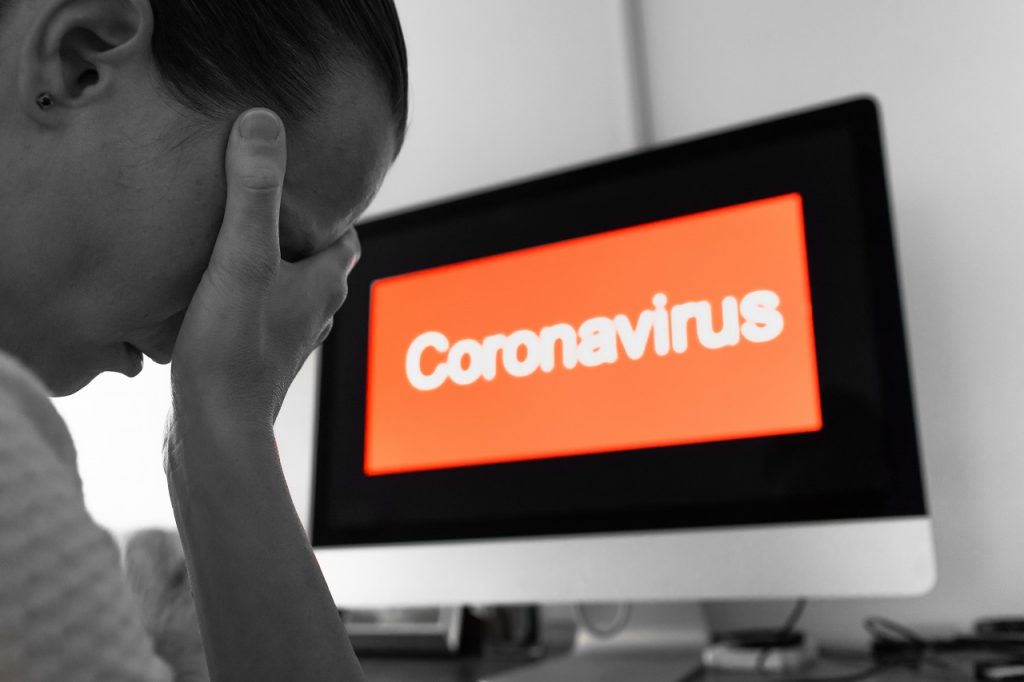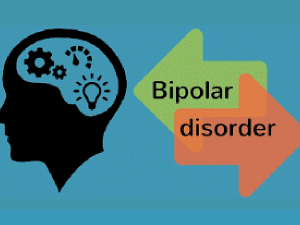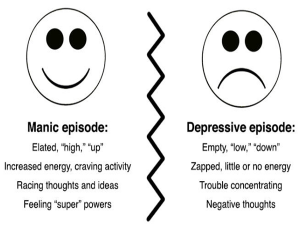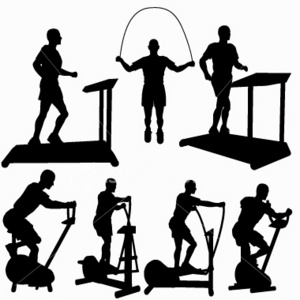
CARDIO- The only form of exercise which has grabbed everybody’s attention and why not, almost all the common activities are a form of cardiovascular exercise.
Whenever I ask someone about what exercise you do throughout the day- their reply is mostly WALKING. Hours of walking sometimes.
So, what does cardio include?
- Walking (As already mentioned above)
- Running
- Swimming
- Cycling
- Aqua-aerobics
- Aerobics
- Zumba
- Rowing
- Boxing
I have seen people concentrating only on cardio exercises for years without any change in their routine. Some people consider themselves to be fit with simply walking.
Fitness is measured by different things and not just your overall structure.
As a part of your fitness routine, these 3 components are very important which is as follows: –
- Cardiovascular exercises
- Strength training exercises
- Flexibility exercises
None of the components can be skipped.
All these 3 components are very important for a proper fitness regime.
The question which I always get is (which also became an idea to write this article) how much cardio should I do?
And my answer is (Always), you should actually ask how much of these 3 components I should do?
Well, I will be covering all these 3 components in 3 separate articles so for now, I will be concentrating on cardio.
So, going back to the question which I always get, I wish I had an answer to that which could be as simple as
Do 60 minutes a day or maybe 150 minutes a week!
But being a healthcare professional, I cannot give a generic answer.
In fact, that question has no specific answer.
The amount of cardio which should be done completely depends upon these 4 factors: – (Ps: – Please read all the factors before you come to a conclusion for yourself)

(1) It depends on what you are aiming at.
Well, not everybody needs weight loss! Some people might be looking for muscle gain while someone else might need to run a marathon.
So, does that mean all of them will be doing 150 minutes of cardio per week?
Definitely not!
Along with the aim, you also need to know about your metabolism.
Metabolism is the rate at which your body needs calories while resting.
So, for a person who wants to lose weight will probably be needing a lot of cardio but for someone who wants to build muscle- the amount of cardio which you require completely depends on your metabolism. If you have a fast metabolism then you don’t need any cardio but if your metabolism is slow then you need to do some amount of cardio.
Someone who is into different sports like shot put or powerlifting or sprinting might require very little cardio.
Why am I targeting these 2 categories first?
It is because losing weight and gaining muscles are totally different things to talk about. For your body as well, it becomes a very confusing state because the body cannot do 2 things simultaneously. However, with proper training, it does become possible sometimes.
Then, what about fat loss? How much cardio should one do?
If losing weight is your only goal then it is okay to put your focus more on cardio and neglect the muscle gain part.
You just work on not losing muscles while you are losing your fat.
This can be achieved by 2 times a week strength training and adequate proteins in your diet.
What If someone is a marathoner? How much cardio should one do?
It also includes a good amount of cardio and minimum strength training but flexibility here is very important. It can all be divided throughout the week with a focus more on cardio and other endurance sports.
Although I don’t like putting anything in a restricted way I guess I can do with sharing some guidelines about the first factor which I have discussed in brief above so that it becomes easier for everyone to understand.
- Building muscle + Fast metabolism = No cardio
- Building muscle + Slow metabolism = 2-4 days per week with about 20-30 minutes every day.
- Losing fat = 5-6 times per week with about 45-60 minutes every day
- Marathoner= 4-6 times per week with about 30-60 minutes every day
*This is very generic; the requirement might differ in each person but this can be used as a guideline to work upon.
(2) State of your hormones
Well, the most common problem which most of us are facing is WEIGHT GAIN or UNABLE TO LOSE THE EXISTING WEIGHT which ultimately makes you hit the gym and your trainer will suggest you do cardio. He or she will decide the plan and everyone blindly follows that plan. But, do you think everybody needs exactly the same amount of cardio?
When your weight becomes a problem the hormone which comes into the picture is CORTISOL.
Cortisol is a hormone which is released all the time in the body but most commonly it reaches its peak under extreme stress. When the stress is often short-term like some assignment to complete or some exams to give then the graph of cortisol keeps fluctuating but when the stress becomes long term which goes on for months and years then the gland which produces cortisol is adrenal glands that starts burning out which means there won’t be enough cortisol which is produced. Well, none of this is good. Neither LOW nor HIGH. Everything goes well in balance.
So now that was about the theory, let’s understand how to practically apply it.
Symptoms of cortisol imbalance: –
- Rapid weight gain
- Muscle weakness
- Chronic fatigue
- Mood swings
- Anxiety
- Depression
- Confusion
- Insomnia
- Fluctuating sugar levels
How to know about your cortisol imbalance?
- It is important to do a stress test first and then go for the lab reports and get your 8 am cortisol checked.
- Visit an endocrinologist with your reports.
How much cardio should you do if your cortisol levels are not up to the mark?
- Under 60% of your maximal heart rate.
How to calculate your maximal heart rate?
- 220 – your age= maximal heart rate
For example: –
Person who is 40 years of age,
220-40= 180 (Maximal heart rate)
60% of 180 = 108 beats per minute.
- You should not cross 108 beats per minute while doing cardio in any case.
- You must strictly monitor it and get yourself a personal trainer/coach who can help you understand this.
Why are we discussing cortisol imbalance and what is the reason behind reducing your cardio activities in such cases?
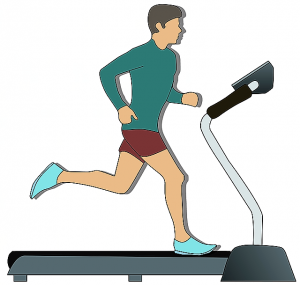
- All the exercise puts the body into some stress. This stress can affect stimulation of different hormones.
- When you do steady cardio like a treadmill or cycling your body increases cortisol and reduces other hormones like growth hormone.
- When you do interval training your body increases cortisol and growth hormone
- When you do strength training with moderate repetition and sets your body increases growth hormone and cortisol by a small margin.
- When you do strength training with heavy repetition and sets your body increases testosterone (Which is mostly seen in bodybuilders)
I have given you an in-depth reason here so that you can understand that doing cardio under any stress will increase the complication even more and will do no good to your body.
So before getting into intense workouts, check your cortisol levels.
If everything is okay then you can do the cardio as discussed above.
(3) Depends on your intensity
Whenever I try getting the history about exercises, I get to hear this very often: –
” I do cardio for about 1 and half hours in the gym but I am not getting any results “
” I walk for about 2 hours a day, one hour in the morning and one hour in the evening but I don’t think it is helping”
Well, the basic point to this is,
YOUR DURATION DOESN’T MATTER.
WHAT MATTERS IS- YOUR INTENSITY.
You can work out for just like 15 minutes and still get the same effect as you might get it from longer duration.
Since a couple of months, I often see people talking about high-intensity workouts, low-intensity workouts. I was actually very curious to know their definition of these workouts. I was actually very surprised to know that out of 10 people not even 2 of them knew what exactly it is. They were talking about it because they read it on the internet or their trainer told or something else. You don’t need to be a doctor or personal trainer or a certified health expert. You as a common man to have the rights to know, after all, you are the one who is actually, going to follow that advice. Well, writing this article in this depth is just for everyone to understand the basics behind all the theories which are coming up.
So, coming back to the theory behind intensity.
What is a low-intensity workout?
- Under 60% of your maximal heart rate (How to calculate it is mentioned above) is a low-intensity workout.
- These intensity workouts will not increase the endurance but do have relaxation benefits.
What is moderate intensity workout?
- In between 60-85% of your maximal heart rate is moderate intensity workout.
- This is a basic workout if your goal is to lose fats.
- Start with 3-4 times per week and for 30-45 minutes
- This is just about cardio however in this routine strength training is also required which will be covered in the upcoming article.
What is a high-intensity workout?
- Anything above 85% of your maximal heart rate is high-intensity workout
- This can be maintained only for about 1-4 minutes before your speed drops and then gradually goes ahead.
- Start with 2-3 times per week for about 20 minutes.
- This course will include proper strength training also which will be covered in upcoming article
Note: – High-intensity workout is not suggested for anybody who has not done any cardio exercises for past 4 months, for someone who has serious cardiac issues. Please consult your doctor before getting into these kinds of workout. Inform your coach and coaches too can take this as a basic part of history taking.
(4) Depends upon how well your response to cardio exercises.
- As I mentioned in the beginning of the article, every individual is different and there is no same answer to HOW MUCH CARDIO YOU SHOULD DO?
- It all depends on your responses which can vary from person to person
- I can simply guess that maybe you require this much workout but I am never sure about it unless I check the response for minimum 15 days.
My players always ask me that why do I give the workouts for 15 days and then think so much for the next set of workouts. Sometimes it so happens that I refuse to change the workout and make then repeat it for 15 days. I know it’s annoying, like very annoying but it is better than any serious injury. Unless I am sure about the responses and progress I do not go ahead in case of workouts.
This article only gives you insights about CARDIO but your workout routine is incomplete with strength training and flexibility.
My next blog is HOW MUCH STRENGTH TRAINING YOU NEED TO DO?.
We hope this article helps you. For further information or guidance, reach out to our certified experts by subscribing to GOQii’s Personalised Health Coaching here.
#BeTheForce
 Most of us tend to feel low when things don’t work in our favor. At times, we give a 100% to a task expecting something good in return. When these expectations aren’t met, we succumb to negative thoughts and depression.
Most of us tend to feel low when things don’t work in our favor. At times, we give a 100% to a task expecting something good in return. When these expectations aren’t met, we succumb to negative thoughts and depression.